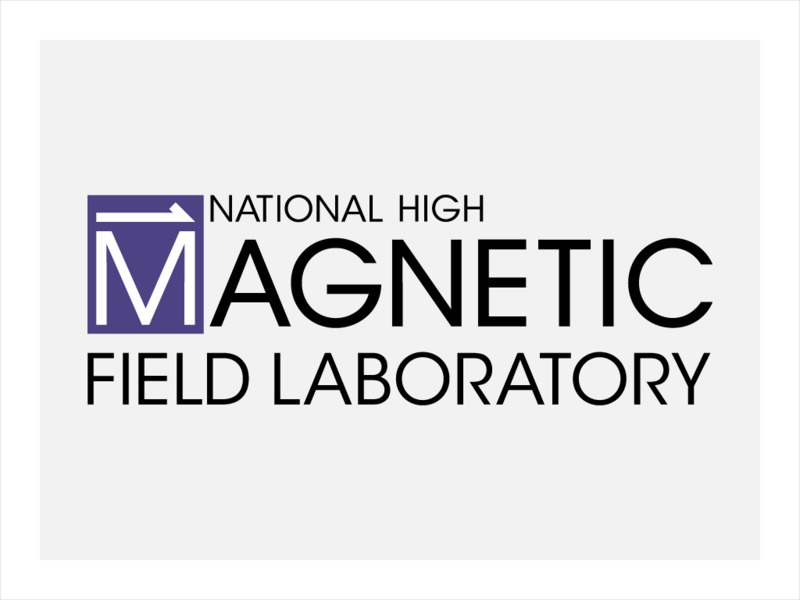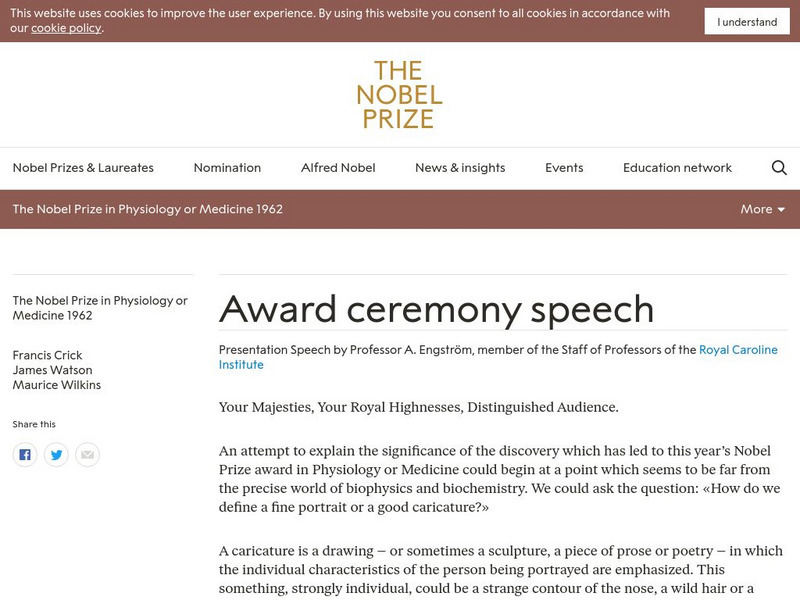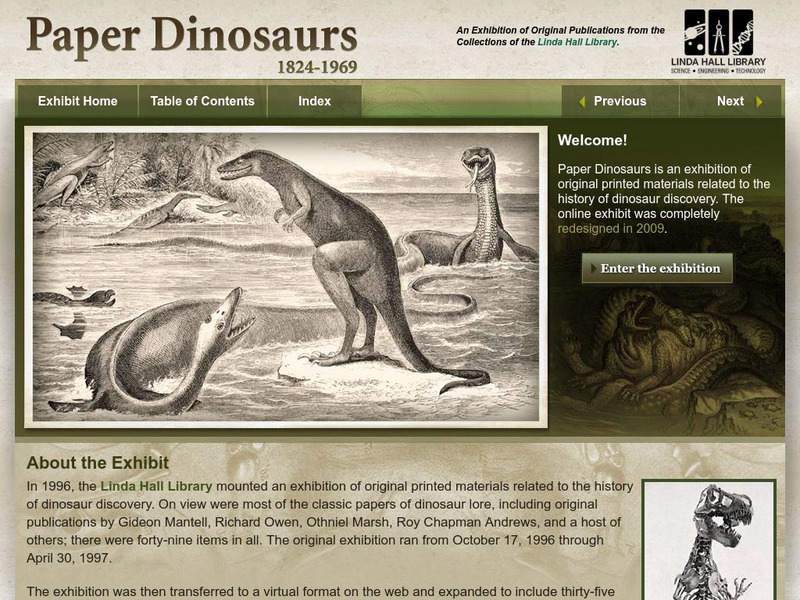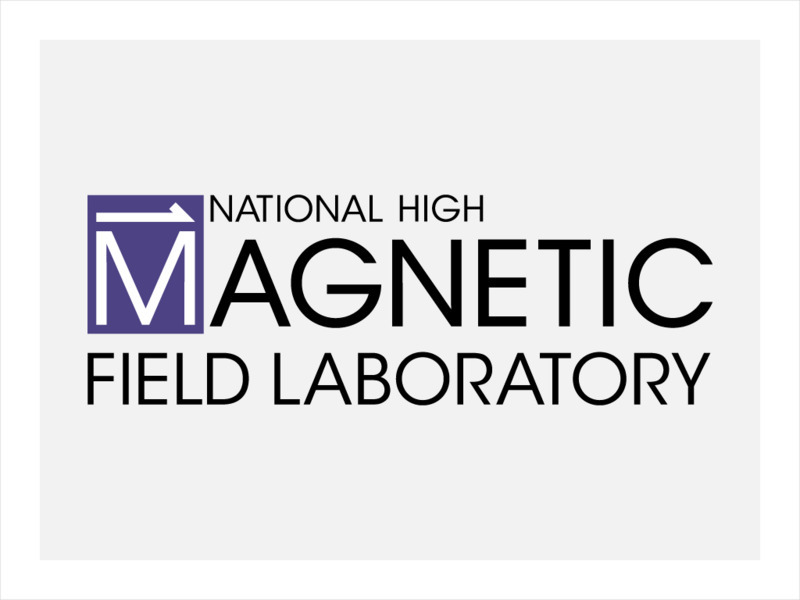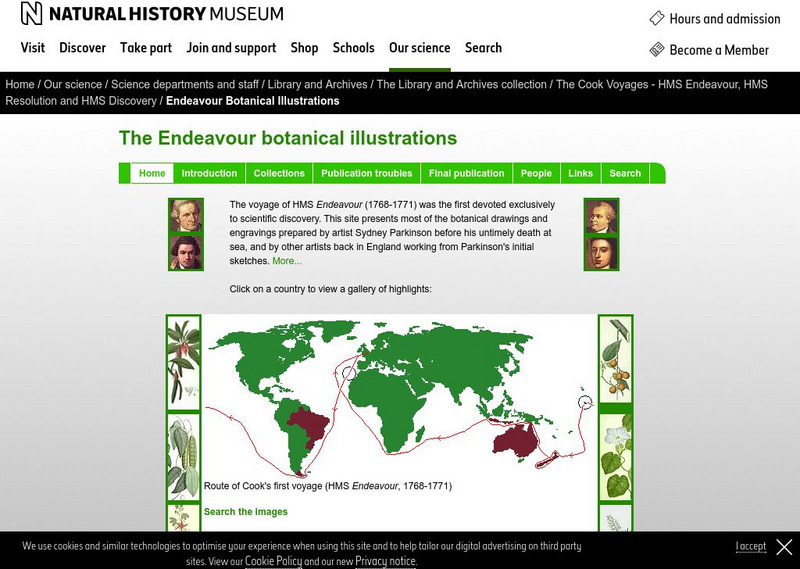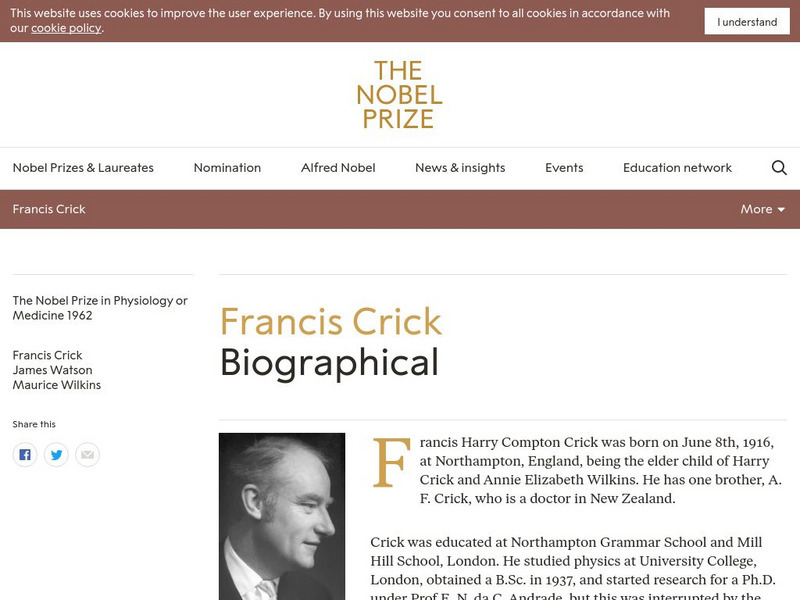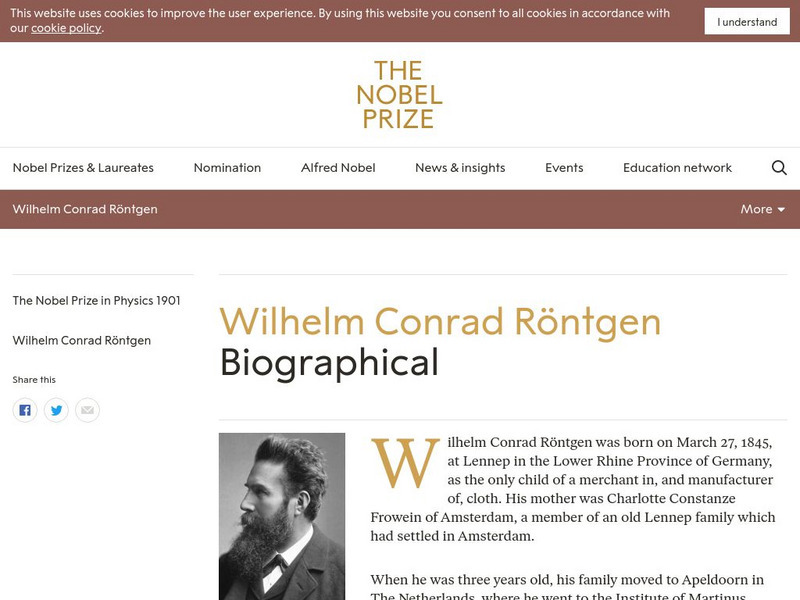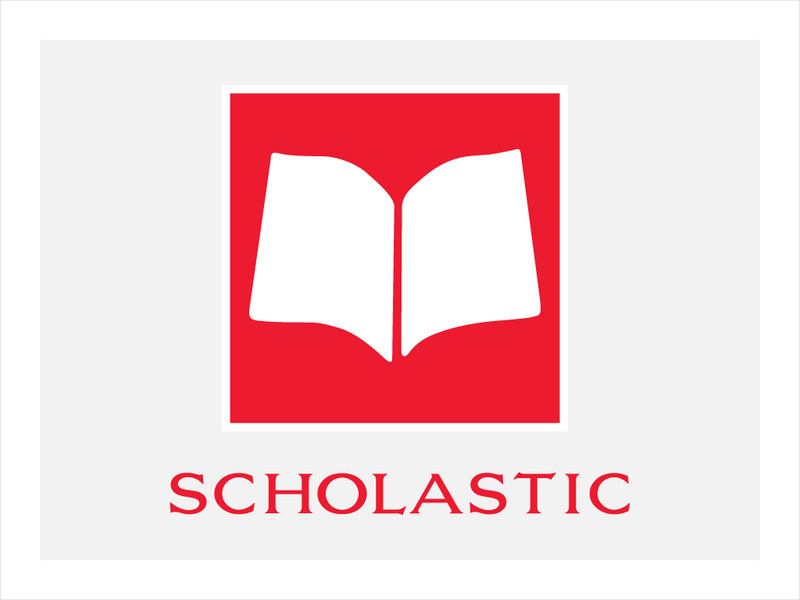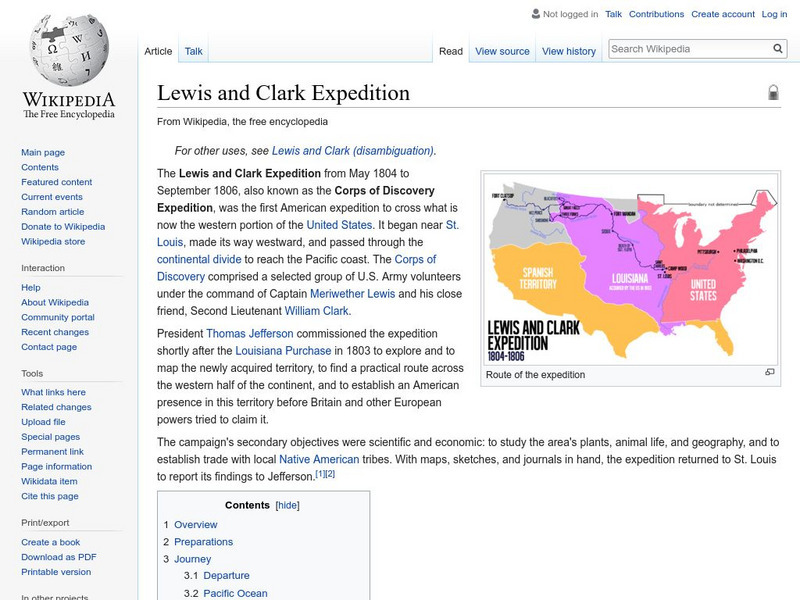National High Magnetic Field Laboratory
Magnet Academy: Timeline of Electricity and Magnetism: 1600 1699
The Scientific Revolution takes hold, facilitating the groundbreaking work of luminaries such as William Gilbert, who took the first truly scientific approach to the study of magnetism and electricity and wrote extensively of his findings.
National Health Museum
Access Excellence: James Watson
Excellent overview of the scientific career of James Watson. Includes a black and white photo. This site also offers links to information on Rosalind Franklin, Linus Pauling, and the Human Genome Project.
National High Magnetic Field Laboratory
Magnet Academy: Timeline of Electricity and Magnetism: 1820 1829
Hans Christian Orsted's accidental discovery that an electrical current moves a compass needle rocks the scientific world; a spate of experiments follows, immediately leading to the first electromagnet and electric motor.
Nobel Media AB
The Nobel Prize: The Nobel Prize in Physiology or Medicine 1962 Award Ceremony
Here you can find the full text of the speech, by Professor A. Engstrom, presenting the 1962 Nobel Prize in Physiology or Medicine to Maurice Wilkins, James Watson, and Francis Crick for their discovery of DNA's structure. The speech...
Other
Linda Hall Library of Science: Paper Dinosaurs: 1824 1969
Online exhibit of illustrations by dinosaurs, drawn, sculpted, and photographed, constitutes an artistic record of the history of dinosaur discoveries and knowledge.
National High Magnetic Field Laboratory
Magnet Academy: Timeline of Electricity and Magnetism: 1870 1879
The telephone and first practical incandescent light bulb are invented while the word "electron" enters the scientific lexicon.
Natural History Museum
Natural History Museum (London): The Endeavour Botanical Illustrations
A series of articles and online exhibits that gives information on the various specimens, plants and animals that were collected and illustrations were then made. Cook led the world's first scientific naval expedition to the South Pacific.
Nobel Media AB
The Nobel Prize: Francis Crick Biographical
Read about the co-recipient of the 1962 Nobel Prize in Medicine. This biography includes a picture of Crick as well as information on his personal life. Most focus, however, is on his scientific contributions and discoveries "concerning...
Math Science Nucleus
I. Science Ma Te: Integrating Science, Math and Technology
This site offers a wealth of online textbook-related materials that encourage the discovery of science in the world around us. Enter the site to access material on specific topics. Each section contains reading material (complete with...
Alabama Learning Exchange
Alex: Science Is a Wonderland
This is an inquiry lesson plan to teach students critical thinking skills. The student will learn through discovery what inquiry skills are and how they are used. They will learn how scientists use these skills in the scientific method...
Science Education Resource Center at Carleton College
Serc: Investigating Movement of Tops
Learners will raise questions about the way tops move by observing, through exploration/inquiry time, what they are made of, how the shape of each top affects its movement and what surface is best for a top to spin longest. As they...
Other
University of Richmond: Archimedes Initiative
The Archimedes Initiative is home to thematic videos on aspects of the inquiry cycle. With coverage of the ins and outs of science fair projects and video interviews of science fair participants who discuss their projects, discoveries,...
Nobel Media AB
The Nobel Prize: Wilhelm Conrad Rontgen Biographical
This biographical note on Wilhelm Conrad Rontgen describes his boyhood, upbringing, education, scientific work and accomplishments. Focuses on his studies of Xrays.
Nobel Media AB
The Nobel Prize: The Nobel Prize in Physiology or Medicine 1933
At this site from The Nobel Foundation you can read about Thomas Hunt Morgan, the scientist who won the Nobel Prize in Medicine "for his discoveries concerning the role played by the chromosome in heredity." This website is organized...
Nobel Media AB
The Nobel Prize: Wendell Stanley Biographical
This is a brief Nobel E-Museum biography on Wendell Meredith Stanley, the scientist and co-recipient of the 1946 Nobel Prize in Chemistry.Read about his education, as well as his contributions to various scientific studies through which...
Scientific American
The Strange Case of the Minnesota Iceman
The modern-day corpse of a human-like hominid, preserved in a block of ice, encountered by researchers in the 1960s. Surely the zoological discovery of the century!
Discovery Education
Discovery Education: Rome's Influence
A lesson plan which has students understanding the impact that Rome had on history, from things as diverse as city planning to our everyday vocabulary.
Other
Alpha Galileo
AlphaGalileo is a news resource for international science, medicine, and technology. Content includes daily science press releases and news, complete with contact information for follow-ups. Also offers podcasts, downloadable in MP3...
American Chemical Society
American Chemical Society: Directory of National Historic Chemical Landmarks
A database of milestones and accomplishments in the field of chemistry. The information is organized in four ways: by year, by category, by U.S. state, and by country.
Scholastic
Scholastic: Cyberhunt Kids: Lewis and Clark Cyber Hunt
What kind of adventures did Lewis and Clark experience on their great expedition? Find out more when you utilize this interactive Internet Cyber Hunt.
Wikimedia
Wikipedia: Lewis and Clark Expedition
An encyclopedia article from Wikipedia on Meriwether Lewis and William Clark's 1804-1806 expedition. The article discusses the places that were visited during their journey, the significance of the expedition, encounters they had with...
US Department of Agriculture
U.s Department of Agriculture: Lady Liberty Gets an Oil Change
Soybean oil isn't just only for cooking. Now scientists have turned it into a special oil used to run elevators -- including the one inside the Statue of Liberty.
Sophia Learning
Sophia: Plant Kingdom: Two Approaches to Learn About Nature
Take one of two approaches when investigating nature, using either inductive or deductive reasoning.
Enchanted Learning
Enchanted Learning: Inventors & Inventions From the 1700s
Use this site to learn more about early inventors and inventions from the 18th century. This web page offers text and images on various inventors and their inventions. You can also access information about inventors and inventions from...
